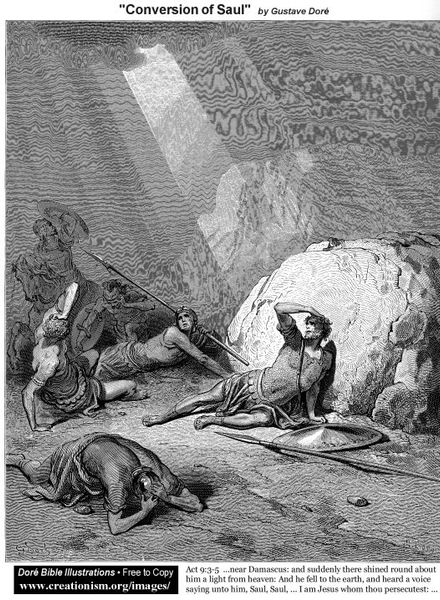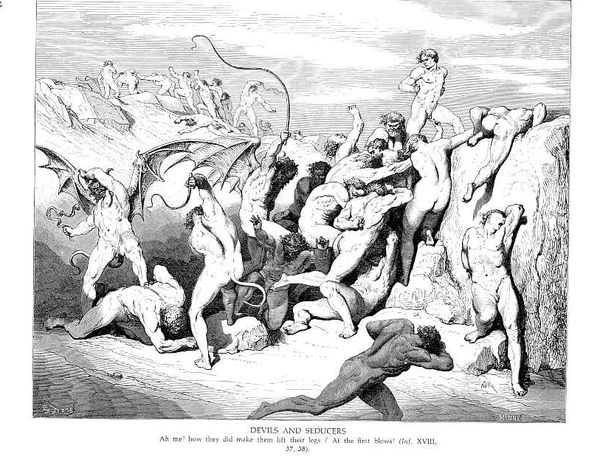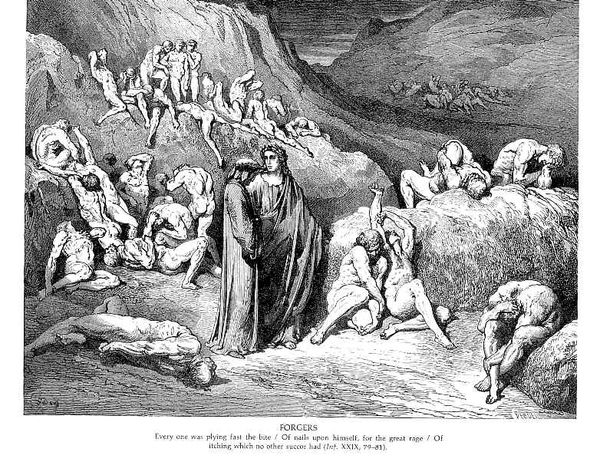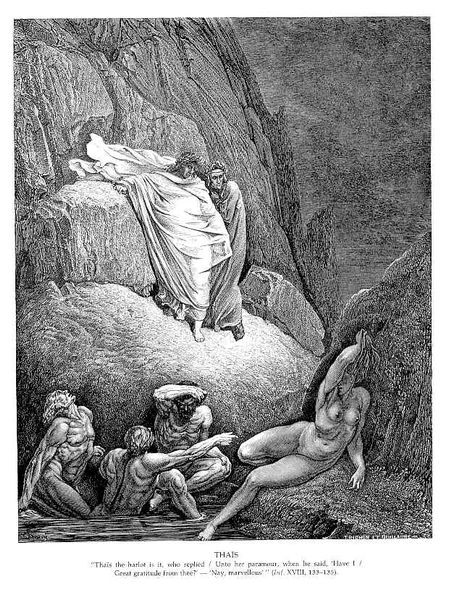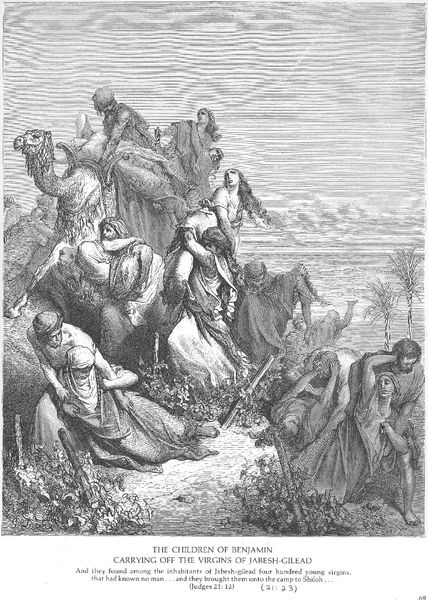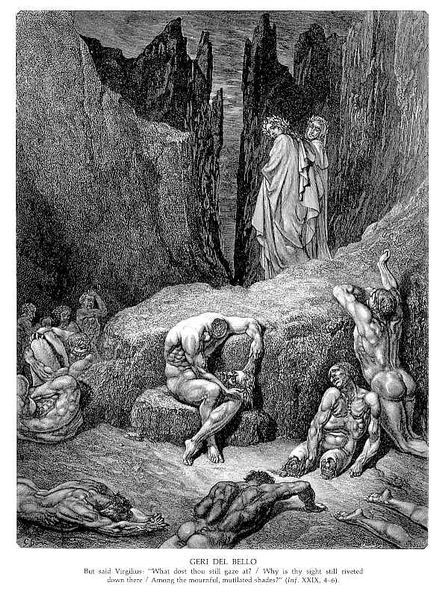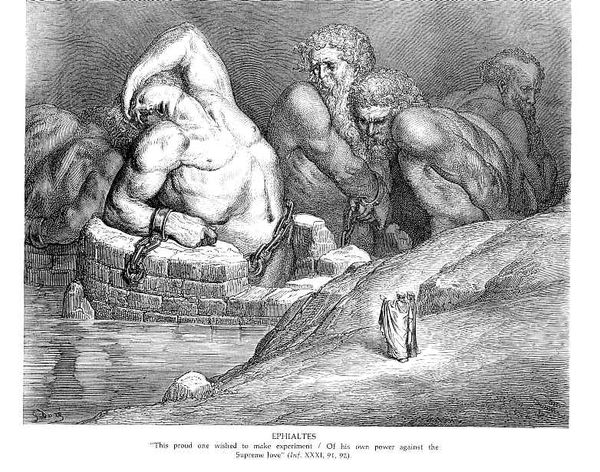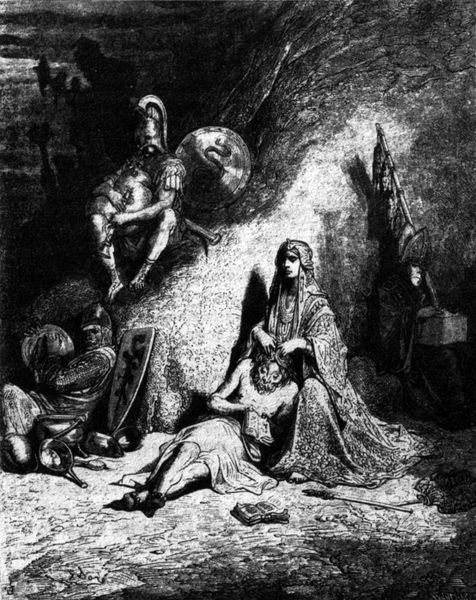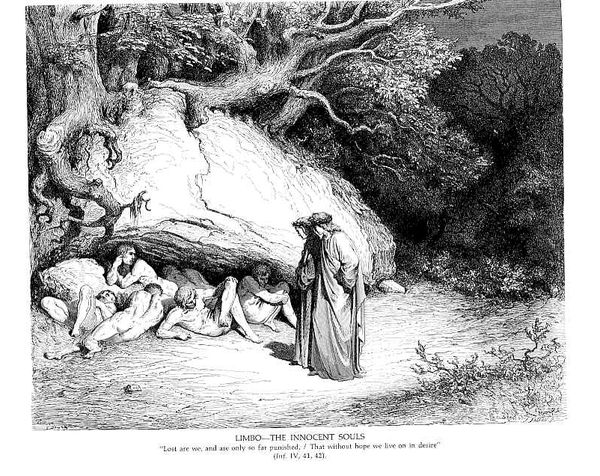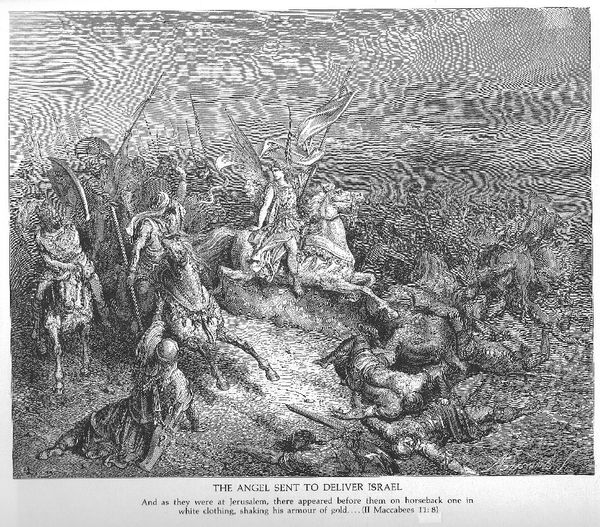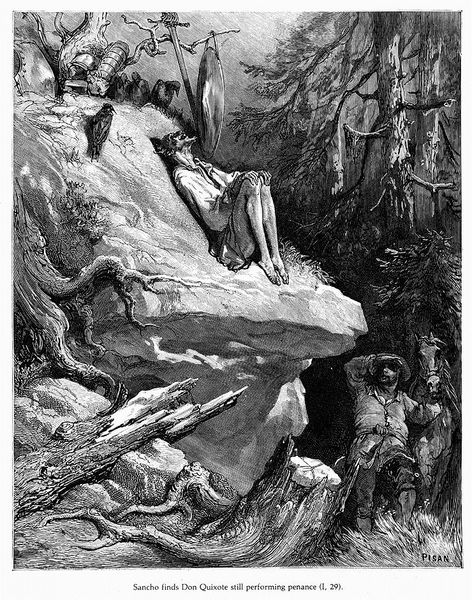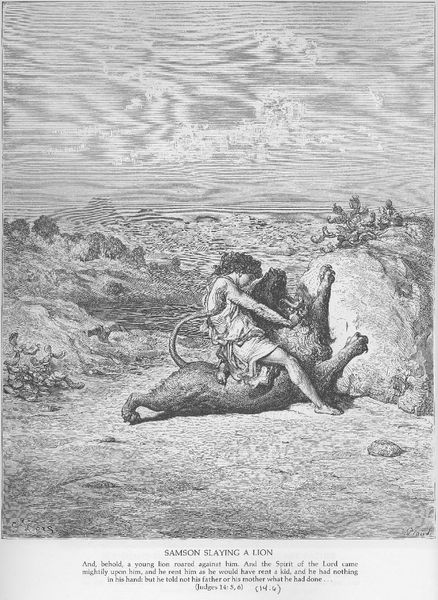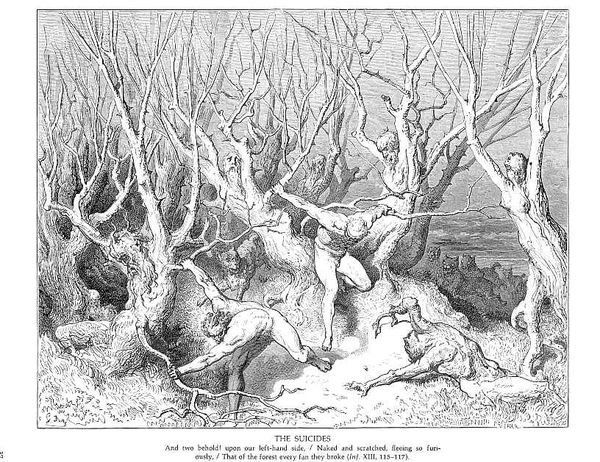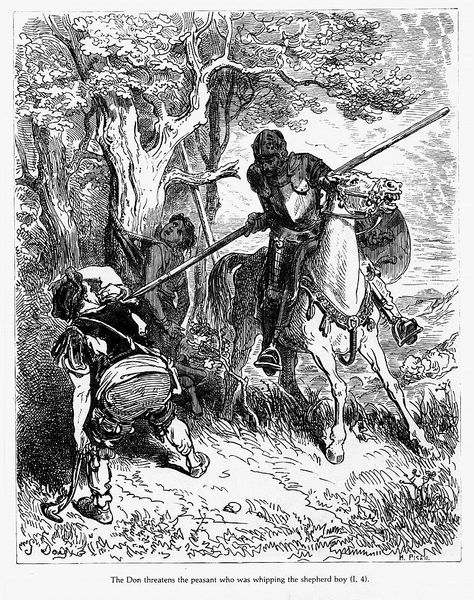
drawing, ink
#
drawing
#
narrative-art
#
pen illustration
#
figuration
#
ink
#
romanticism
#
history-painting
Copyright: Public domain
Gustave Doré made this engraving, "Sower of Discord," in 19th-century France, illustrating a scene from Dante's Inferno. This image vividly captures the poem's vision of hell as a place of punishment for those who sow division. Doré’s work reflects the moral and social anxieties of his time. He uses visual cues, like the demonic figure wielding a sword, to symbolize the destructive nature of discord. Consider France's own history of revolution and social upheaval, alongside the rise of industrial capitalism and the resulting class divisions. Such a context would give Doré’s illustration a potent contemporary resonance. The image might be seen as a cautionary tale about the dangers of social fragmentation. To understand this artwork more fully, we can turn to literary studies, political theory, and social histories of 19th-century France. By situating art within its broader social and institutional context, we gain a deeper appreciation of its meaning and enduring power.
Comments
No comments
Be the first to comment and join the conversation on the ultimate creative platform.
